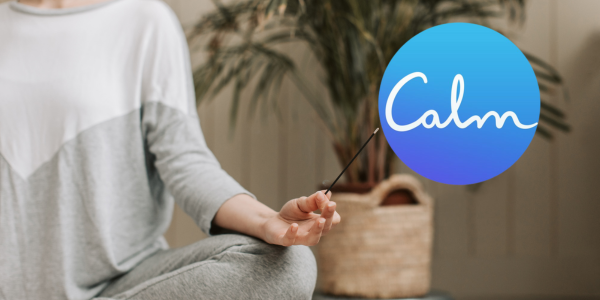Living with more balance and lightness is possible by practicing stress management.
Ad
We live in a society where demands seem endless, and the fast-paced rhythm of daily life can easily overwhelm us.
It’s worth noting that stress affects not only the mind but also the body, disrupting our sleep, relationships, and even productivity. That’s why adopting daily practices to ease pressure and anxiety is essential for preserving our health.
In this post, we will explore some simple and effective strategies to help you deal with stress in the best way possible.
You’ll see tips for relaxation, exercise and healthy habits that you can add to your daily routine. Keep reading to find out more!
1.Breathing Practices to Relieve Stress
One of the quickest and most effective ways to reduce stress is through breathing.
Simple techniques like deep breathing help calm the nervous system and improve oxygenation, providing an immediate sense of relaxation.
Check out some breathing techniques below that will help you with stress management:
- Diaphragmatic breathing: Sit in a relaxed position and take a deep breath through your nose, letting your abdomen expand with the air. Then, exhale gently through your mouth, releasing any tension. Repeat this for several minutes, and you’ll notice both your body and mind calming down.
- 4-7-8 breathing: Breathe in deeply through your nose for 4 seconds, hold the breath for 7 seconds, and then slowly exhale through your mouth for 8 seconds. This technique is highly effective for soothing the mind and reducing feelings of anxiety.
- Alternate nostril breathing: Close one nostril and inhale deeply through the other. Then switch nostrils and repeat the process. This practice helps harmonize the body and ease stress, providing an instant sense of relaxation.
If you’re just starting or need assistance improving your technique, the Calm app is an excellent option.
It offers guided meditations, breathing exercises, and relaxing soundtracks you can use anytime to help with stress management. It’s worth checking out!
The platform is available for Android and IOS devices. You can also find out more about the app through the website.
2.Practical Relaxation Tips
Sometimes, the best way to relieve stress is to take a break for your body and mind, especially when feeling overloaded with work and daily responsibilities.
Here are some simple tips you can apply to your daily routine:
- Regular breaks: During your workday, it’s important to take a few minutes to stand up, stretch, and give your body a break. These small intervals help relieve tension and leave you feeling more energized.
- Listen to relaxing music: Listening to soft melodies is an excellent way to reduce anxiety and calm the mind. Try choosing playlists with tranquil sounds or instrumental music to bring more serenity to your day.
- Shoulder and neck massage: Stress often accumulates in these areas. A quick massage can be a wonderful relief, releasing tension and leaving you feeling more relaxed.
If you’re looking for more relaxation options, the Insight Timer app is a great tool.
It offers a wide variety of nature sounds, meditation timers, and relaxing music you can use anywhere, whether at work or home.
The app is available for download for Android and IOS devices.
3.The Importance of Light Physical Activities for Stress Relief
It’s no secret that regular physical activity is one of the most effective ways to reduce stress.
While intense workouts also help, gentler activities like walking or practicing yoga can be equally beneficial. Here’s how:
- Outdoor walks: A 20 to 30-minute walk outdoors can significantly improve your mood and relieve accumulated tension while providing a moment of connection with nature.
- Yoga and stretching: Yoga, with its gentle movements and focus on breathing, is perfect for those looking to relieve physical and mental stress, bringing balance and well-being to body and mind.
- Tai Chi: This gentle practice, involving slow and coordinated movements, helps promote mental and physical balance while being an excellent way to reduce anxiety and foster relaxation.
4.The Impact of a Good Night’s Sleep on Our Bodies
Sleep undoubtedly plays a crucial role in stress management. A good night’s sleep allows the body and mind to recover, restoring energy and processing the day’s experiences.
Want to discover the main benefits? Check them out below!
- Improved mental health: Sleeping well is essential for taking care of your mind. When we rest adequately, our mood improves, and anxiety decreases, making it easier to face the next day’s challenges.
- Physical recovery: During sleep, our bodies recover and regenerate. This process is crucial to counteract the effects of accumulated physical stress, allowing us to wake up refreshed.
- Increased productivity: A good night’s sleep enhances our concentration and decision-making abilities, reducing work-related stress and helping us be more efficient.

Benefits of Good Sleep (Google Source)
Remember, establishing a regular sleep routine without distractions is essential to maintaining healthy stress management levels.
Avoiding electronic devices before bedtime and creating a calm environment are great practices to ensure a restful night’s sleep.
5.Routine Planning to Reduce Overload
One of the main causes of stress is task overload and responsibilities. However, stress management becomes much more effective when we have a clear and realistic plan for our daily routines.
Check out some strategies below that can help you organize your routine and reduce the feeling of overload:
- Prioritize your tasks: Evaluate what’s most urgent and important, leaving less essential tasks for later.
- Set small goals: Instead of trying to do everything at once, break your goals into smaller, achievable tasks. This makes everything more manageable and less stressful.
- Delegate when possible: Don’t be afraid to ask for help. Delegating tasks can significantly ease the pressure and allow you to focus on what truly matters.
- Make time for yourself: Amidst the hustle, it’s essential to include moments of rest and leisure. Practicing self-care is important to maintain balance and energy.
- Review your workload weekly: Each week, revisit your schedule and see if anything needs adjustment. This helps prevent accumulation and keeps you in control.
Conclusion
Stress management is a skill that everyone can develop, and the sooner we start adopting simple practices, the easier it becomes to maintain balance in daily life.
Whether through breathing, physical activities, proper sleep, or a well-planned routine, there are many ways to take care of your mental and emotional health.
Try these tips and discover which ones work best for you. The important thing is to find a path that helps you relax, feel lighter, and manage stress in a healthy and effective way.




